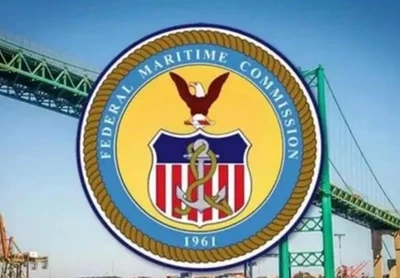
The global shipping industry is constantly evolving, driven by technological advancements, economic shifts, and environmental considerations. Keeping an eye on the latest trends in global ocean freight is crucial for businesses, shipping companies, and anyone involved in international trade. In this blog, we'll explore the current trends that are shaping the future of the shipping industry.
Smart ports are leveraging the Internet of Things (IoT) to enhance efficiency and security. Sensors and data analytics are being used to optimize cargo handling, track container movements, and improve overall port operations.
Blockchain technology is gaining traction in global ocean freight for its ability to create transparent and tamper-proof records of shipments. It helps reduce fraud, streamline documentation processes, and enhance trust among stakeholders.
Environmental concerns are driving the adoption of cleaner fuels, such as LNG (liquefied natural gas) and biofuels. Shipping companies are also implementing green initiatives, including emission reduction programs and vessel design improvements for greater fuel efficiency.
Ports are increasingly focusing on sustainability. They are investing in renewable energy sources, shore power connections for vessels, and reducing emissions from port operations to minimize their environmental impact.
The growth of e-commerce has led to increased demand for global ocean freight services. Shippers are adapting to meet the needs of online retailers, which often require faster, more frequent, and reliable deliveries.
The disruptions caused by the COVID-19 pandemic highlighted the importance of resilient supply chains. Companies are diversifying suppliers, stockpiling critical goods, and reevaluating their shipping strategies to build more resilient supply chains.
Advancements in autonomous technology are paving the way for unmanned vessels and autonomous shipping. While full autonomy is still on the horizon, automation is already improving navigation, safety, and efficiency.
Artificial intelligence (AI) is being used to analyze vast amounts of shipping data for predictive analytics. This helps companies optimize routes, reduce fuel consumption, and enhance cargo tracking.
The global ocean freight industry is undergoing a profound transformation driven by digitalization, sustainability goals, e-commerce growth, and technological advancements. Staying informed about these trends is essential for businesses that rely on international trade and shipping services. As the industry continues to adapt to evolving challenges and opportunities, it will shape the future of global commerce and transportation. Whether you're a shipper, a logistics provider, or simply interested in the world of global shipping, these trends offer a glimpse into the ever-changing landscape of ocean freight.
 Top 10 Freight Forwarders in ChinaAugust 2, 2024Navigating the logistics landscape in China can be challenging due to its vast network and complex regulations. Freight forwarders play a crucial role in managing shipping and logistics, ensuring smoo...view
Top 10 Freight Forwarders in ChinaAugust 2, 2024Navigating the logistics landscape in China can be challenging due to its vast network and complex regulations. Freight forwarders play a crucial role in managing shipping and logistics, ensuring smoo...view What are Incoterms®?October 12, 2023The Incoterms is an abbreviation for “International Commercial Terms.” This term represents a very useful way of communication and it’s actually aimed at reducing confusion between buyers and selle...view
What are Incoterms®?October 12, 2023The Incoterms is an abbreviation for “International Commercial Terms.” This term represents a very useful way of communication and it’s actually aimed at reducing confusion between buyers and selle...view Door to Door vs. Port to Port in International ShippingJune 16, 2024In the realm of international shipping, choosing the right logistics strategy can significantly impact the efficiency, cost-effectiveness, and overall success of transporting goods across borders. Two...view
Door to Door vs. Port to Port in International ShippingJune 16, 2024In the realm of international shipping, choosing the right logistics strategy can significantly impact the efficiency, cost-effectiveness, and overall success of transporting goods across borders. Two...view Shipping Medical Supplies from China: Compliance and Safety TipsJanuary 24, 2025Importing medical supplies from China to the USA can be a highly rewarding yet complex process. The demand for cost-effective, high-quality medical products has skyrocketed in recent years, making Chi...view
Shipping Medical Supplies from China: Compliance and Safety TipsJanuary 24, 2025Importing medical supplies from China to the USA can be a highly rewarding yet complex process. The demand for cost-effective, high-quality medical products has skyrocketed in recent years, making Chi...view